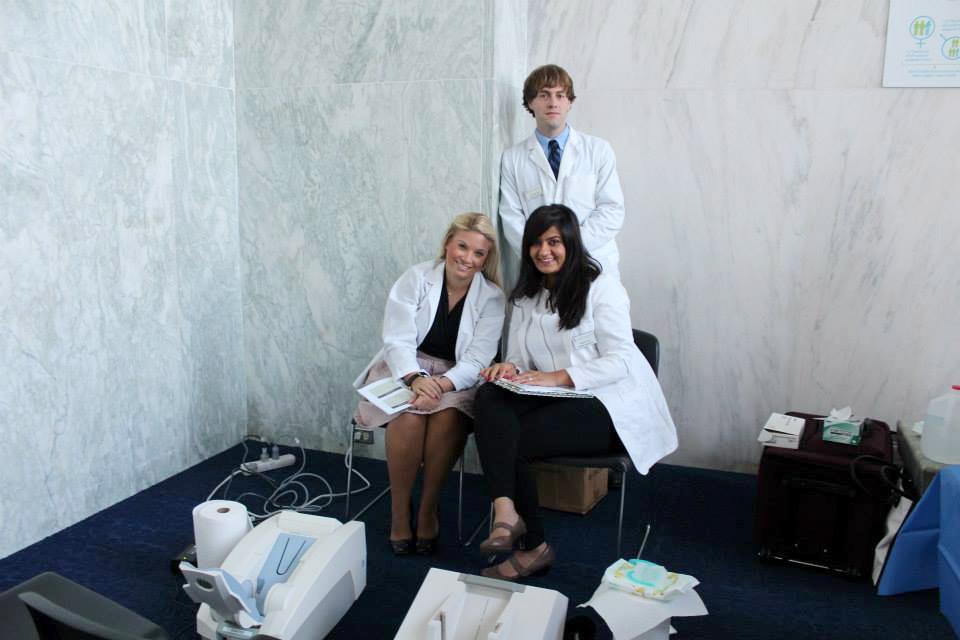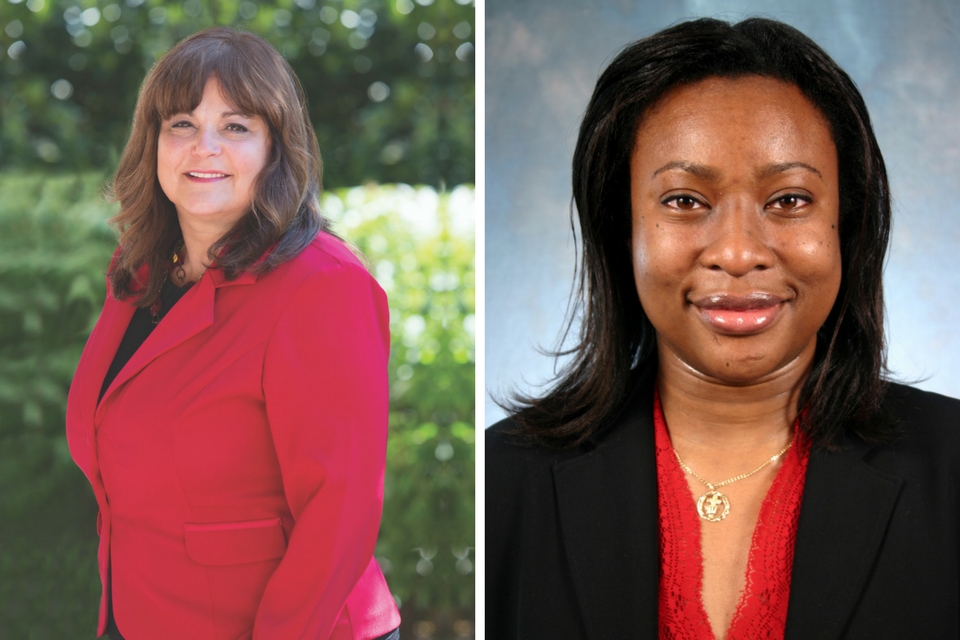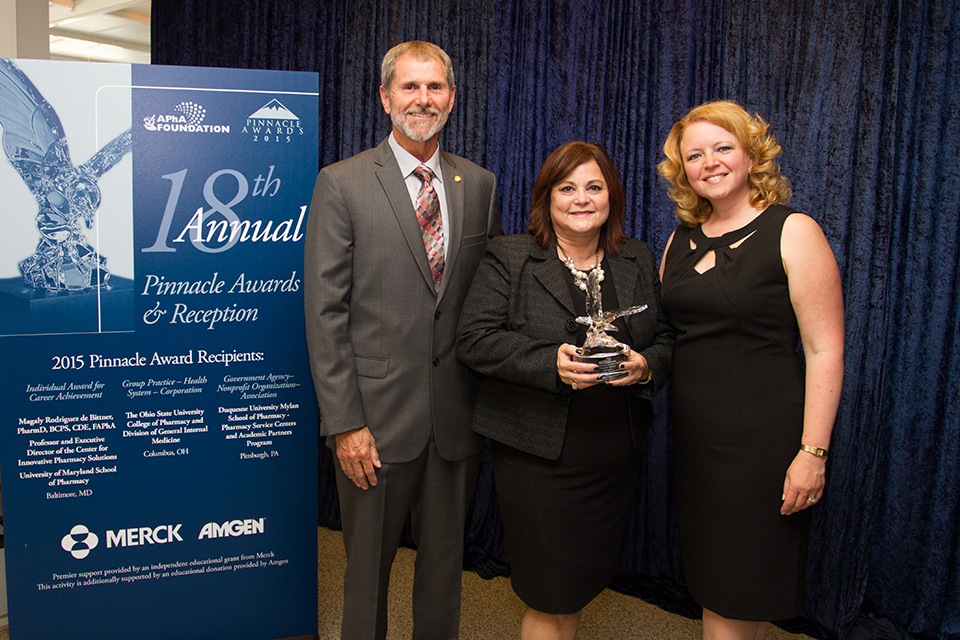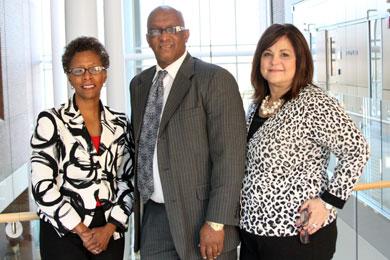Faculty and Students Come Together to Make an Impact on Capitol Hill
The School of Pharmacy has a strong presence in front of Congress in September as faculty and students share their clinical expertise through health fairs, meetings, and testimonies.

By Sean Cooper
October 16, 2014
Faculty and student pharmacists from the University of Maryland School of Pharmacy were visible on Capitol Hill in September as they represented the pharmacy profession through their participation in health fairs, meetings, and testimonies – all with the goal of promoting the pharmacist’s unique expertise and capabilities in improving patient outcomes and reducing health care costs. Faculty, pharmacy residents, and student pharmacists from the School of Pharmacy; the University of Maryland, Eastern Shore; Shenandoah University, and Virginia Commonwealth University assembled on Capitol Hill on Sept. 17, for the pharmacy profession’s 2nd annual Health Fair on the Hill. The fair was designed to inform legislators and their staff about the many services that pharmacists can provide to help individuals maintain healthy lifestyles and prevent and manage chronic illnesses.
“The health fair provided our faculty and students with an ideal opportunity to advocate for our profession, while educating patients at the same time,” says Deanna Tran, PharmD, assistant professor in the Department of Pharmacy Practice and Science (PPS) at the School of Pharmacy.
In addition to helping legislators and other government workers become more knowledgeable and proactive about their health, the event was part of an ongoing initiative led by professional pharmacy organizations and schools of pharmacy to raise awareness and provide valuable insight about health care policy and other important issues related to the profession, including provider status.
“The truth is that many people, including our lawmakers, are simply not aware of the numerous roles that pharmacists have,” says Alexandra McPherson, a fourth-year student pharmacist and member of the American Pharmacists Association Academy of Student Pharmacists (APhA-ASP) at the School of Pharmacy, who was one of several students who provided bone density screenings for those legislators and their staff members who stopped by the fair. “Events such as the health fair on Capitol Hill are essential to promoting the role of the pharmacist as an integral member of the health care team.”
The health fair was organized by the American Pharmacists Association (APhA), the American Society of Health-System Pharmacists, the National Community Pharmacists Association, the National Association of Chain Drug Stores, and the Congressional Community Pharmacy Caucus.
To continue the trend of highlighting pharmacy in Congress, APhA and other pharmacy groups, along with the House Community Pharmacy Caucus, hosted a provider status briefing in the Capitol building on Sept. 24. Magaly Rodriguez de Bittner, PharmD, BCPS, FAPhA, professor and chair of PPS at the School of Pharmacy and director of the School’s Patients, Pharmacists, Partnerships (P3) Program, was asked to speak to members of Congress about pharmacy education, licensure, continuing education, and H.R. 4190, a bill that seeks to amend the Social Security act in order to provide coverage of pharmacists’ services under Medicaid.
In her remarks, Rodriguez de Bittner aimed to provide a better understanding of pharmacy education and training, as well as the unique role that pharmacists can play as the medication experts on the health care team. She highlighted the P3 Program as an example of the difference pharmacists can make in improving patient outcomes and reducing health care costs.
“In 2009, Chesapeake Public Schools (CPS) in Virginia joined the P3 Program, in which pharmacists are paired with employees who have one or more chronic diseases such as diabetes or cardiovascular disease to provide medication therapy management and lifestyle coaching,” she said. “Since joining the program, CPS has shown measurable improvements in employees’ clinical and economic outcomes, as well as their productivity, with a cost-savings amounting to $2,136 per person.
“The improved clinical and economic outcomes of the P3 Program are something that we think will occur more broadly when more patients have access to a pharmacist’s services through H.R. 4190,” she said.
Also testifying on Capitol Hill in September was Nicole Brandt, PharmD, MBA, CGP, BCPP, FASCP, a professor in PPS, who was asked by the coalition Partnership for Part D Access to testify about the importance of maintaining beneficiary access for older adults to the full range of available medications under Medicare Part D.
Brandt participated in congressional staff briefings on Sept. 30 at which she, as the only pharmacist on the panel, shared patient and health care provider experiences that demonstrate the essential importance of protecting beneficiary access to proper care under the Six Protected Classes Policy.
“Since its inception in 2008, Medicare Part D has been effective at improving health outcomes and lowering costs for patients,” says Brandt. “My goal with my remarks before Congress was to highlight what would happen to some of our most frail and vulnerable seniors if their access to needed medications was changed,” she says.
“I am proud of our faculty and students for how well they represented not only the School of Pharmacy but the entire pharmacy profession through these multiple opportunities to raise awareness about the pharmacy profession with members of the federal government,” says Natalie D. Eddington, PhD, FAAPS, FCP, professor and dean of the School of Pharmacy and executive director of University regional partnerships at the University of Maryland, Baltimore. “Advocating for our profession with our law and policy makers is a component of being a pharmacist that we stress with our students from their very first semester with us. Our students have excellent role models in our faculty, as demonstrated by both Drs. Brandt and Rodriguez de Bittner.”



